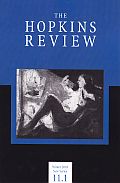Island Graveyard
Deer lsle, Maine
—An inchworm inches across a broken marker
where two families, eight in all, have kept each other company
for a long time, their family plot no bigger than a bedroom,
fenced in by ancient pine trees that give a little shade
and keep out rain. A rusty gate that hangs half off its hinges,
and looks exactly like the headboard of a bed, admits
whoever comes without discrimination, though visitors are rare
in a place where death is writ in lowercase, part of a landscape
of fallen trees gone soft, of lichens bleaching to white,
of Old Man’s Beard hanging like fancy lacework from all
the trees, swaying whenever the wind blows, but today is still.
Their century gone, they lie here and lie here and lie here,
the Billings and the Toothakers—Hattie and David and Mellie,
Mary and William and Angenette and Lucy and John.
The day is hot, the ground is cool and spongy, and it would be
easy, easy but not wise, to lie down for a moment among them,
the swollen ground my pillow, and wake with a start to nightfall,
the owl alive and hunting, darkness over all. . . . Crow calls to crow,
summoning me back from a place that is not a place at all,
and little by little, the inchworm, better than clock or sundial
traverses the mossy stones, gathering itself into a ~~~~,
then flattening into a line, as if to mend a thread that keeps
unraveling and shape the story into beginning, middle, end.
Someday you and I will lie formal and lofty in a grave,
the way that speechless effigies of kings and queens
are laid out, side by side, in dim cathedrals for pilgrims
to touch and wonder at. In chaste repose, no longer
will we feel the press of time pour madly through our fingers,
too fast, too fast! What will we feel then, if we feel at all?
Grave tenderness toward a world that goes on easily without us?
Or will the bodiless part of ourselves escape and spread
like smoke until we’re nowhere and everywhere at once,
a dispassionate blue curve above a curving planet, like a lens
fitted to an eye that cannot close, that sees too much, sees
more than it wants to see. Crow and cicada won’t tell me
what I need to know. Hattie and David and Mellie won’t tell me.
And so I read their names the way the inchworm does, by touch,
lichen and moss cool against my cheek, green crumbling tendrils
waiting to break me down so slowly I won’t even know.
This is as good a place as any to be buried, here on an island
caught in a pocket of time, where fog obscures the morning
until the sun breaks through, and the sound of the ocean breaking
against rock draws us farther than we intended until we stand
at water’s edge and can go no farther, or going farther say goodbye
to everything we know. Practiced in our farewells, we’ll leave
the dead to murmuring posthumous conversations where
racing seasons and constellations figure, where centuries
pass like days and days like centuries, as we retrace our steps
on a path veined and gnarled as an old man’s face— Something is creeping up my arm!
An inchworm on my sleeve measuring me for new clothes.
Feature Date
- March 30, 2018
Series
Selected By
Share This Poem
Print This Poem
Copyright © 2018 by Elizabeth Spires
All rights reserved.
Reproduced by Poetry Daily with permission

Winter 2018
Baltimore, Maryland
Johns Hopkins University
Editor in Chief
Dora Malech
Senior Editor
Kosiso Ugwueze
Managing Editor
Phoebe Oathout
The mission of The Hopkins Review is to publish today's vital voices and visions in literature, culture, criticism, public-facing scholarship, and the arts. Established in 1943 by Elliott Coleman and relaunched in 2007 by John T. Irwin, it celebrated its 15th year of continuous publishing in 2022 with a commitment to creative excellence and its dynamic, diverse, and inclusive present and future.
Contributors to The Hopkins Review have included literary and scholarly luminaries such as John Barth, Donald Barthelme, Harold Bloom, Stephanie Burt, Erica Dawson, Stephen Dixon, Denis Donoghue, Claudia Emerson, Tony Eprile, Marilyn Hacker, Terrance Hayes, Vanessa Hua, Millard Kaufman, Frank Kermode, Richard A. Macksey, Jill McCorkle, Shane McCrae, Alice McDermott, Carl Phillips, Natalie Shapero, A. E. Stallings, Adrienne Su, Colm Tóibín, Helen Vendler, Claire Vaye Watkins, Afaa M. Weaver, C. Dale Young, and many others.
Poetry Daily Depends on You
With your support, we make reading the best contemporary poetry a treasured daily experience. Consider a contribution today.



